Posts Tagged ‘Shan’ (28 found)
Torture, extrajudicial killing, and use of civilians as human shields by Burma Army during new offensive against SSPP/SSA near Upper Yeywa dam site in Kyaukme
During May 2016, the Burma Army has committed grave human rights violations, which meet the definition of war crimes, during a new offensive against the Shan State Progress Party/Shan State Army (SSPP/SSA) in Kyaukme township, northern Shan State, close to the Upper Yeywa dam site on the Namtu/Myitnge river […]
• • •Naypyidaw Must Cancel Its Latest Plans to Build the Upper Salween (Mong Ton) Dam in Shan State
In the past few months, plans have been accelerated to build the Upper Salween (Mong Ton) dam in southern Shan State, which is a joint project between China’s Three Gorges Corporation, the Electricity Generating Authority of Thailand, and Myanmar’s Ministry of Electric Power and International Group of Entrepreneurs […]
• • •UN Myanmar Rights Expert: Backtracking on Democratic Space Gains Momentum in Election Year
YANGON / GENEVA – “Valuable gains made in the area of freedom of expression and assembly risk being lost,” United Nations Special Rapporteur Yanghee Lee said at the end of her ten-day official visit* to the country. “Indeed, there are signs that since my last visit, restrictions and harassment on civil society and the media may have worsened.” […]
• • •Constitutional Stalemate Sinks Hopes of Genuine Democracy and National Reconciliation
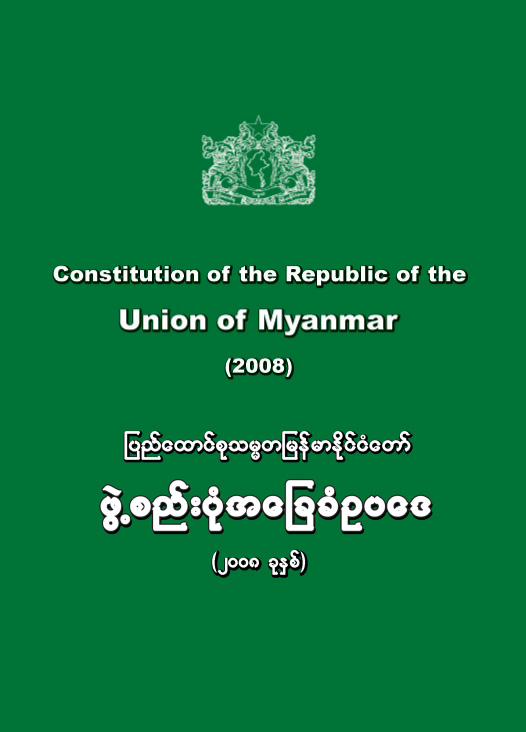 On Tuesday 18 November, Parliamentary Speaker of the lower house of the Burma Parliament Thura Shwe Mann boldly announced – to everyone’s great frustration but no one’s great surprise – that there would be no amendments made to the controversial 2008 Constitution before the 2015 national elections. So, what are the implications of this announcement, and why is the timing significant?
On Tuesday 18 November, Parliamentary Speaker of the lower house of the Burma Parliament Thura Shwe Mann boldly announced – to everyone’s great frustration but no one’s great surprise – that there would be no amendments made to the controversial 2008 Constitution before the 2015 national elections. So, what are the implications of this announcement, and why is the timing significant?
The implications for democracy in Burma are threefold. First, unless Article 59(f) is amended, Daw Aung San Suu Kyi will not be able to lead her NLD party and run for President in the 2015 elections. Although many have long feared the worst, thus far hope has persisted, especially in light of the NLD’s highly successful campaign in favor of constitutional amendment, which attracted five million signatories in support. However, Thura Shwe Mann now seems to be calling time on Daw Aung San Suu Kyi’s political career – and the dreams of so many long-suffering and long-hopeful Burmese – smoothly but ruthlessly side-lining her until such time as she can safely be labeled a political irrelevance, and dumped for good. At the same time, his comments can be interpreted as an oblique, discreet and wily announcement of his own ambitions for a tilt at the presidency next year.
Second, without a significant overhaul of the 2008 Constitution to ensure that the rights, autonomy and self-determination of ethnic minority nationalities are respected and enshrined in law, the peace process does not stand a chance. Fighting rages on in Kachin State – not to mention in northern Shan and Karen State – with no sign of abating. The day after Thura Shwe Mann made his announcement, 23 Kachin and other ethnic nationality soldiers were killed and as many as 15 wounded when Burma Army troops fired on a military training base in Laiza, the strategic headquarters of the Kachin Independence Army. […]
• • •Are You Listening, President Obama?
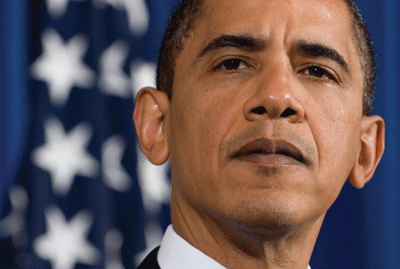 US President Barack Obama’s made his much-anticipated second trip to Burma last week during the 25th ASEAN Summit, amid growing awareness that the reforms which he so eagerly celebrated during his 2012 trip are quickly unravelling – or being exposed for the stage-managed charade that they are.
US President Barack Obama’s made his much-anticipated second trip to Burma last week during the 25th ASEAN Summit, amid growing awareness that the reforms which he so eagerly celebrated during his 2012 trip are quickly unravelling – or being exposed for the stage-managed charade that they are.
In 2012, it was all too easy to trust the reform process. National elections had been scheduled for 2015, Daw Aung San Suu Kyi had been freed from house arrest and elected to Parliament, political prisoners had been released, a nationwide ceasefire process was underway with the majority of armed ethnic groups, and restrictions on media and civil society had been drastically loosened. And so the US and the international community embraced the reforms.
Yet, last month, in her recent address to the UN General Assembly, Special Rapporteur on the situation of human rights in Burma Yanghee Lee warned of the risks of backtracking. Then, earlier this month, Daw Aung San Suu Kyi labelled the process as “stalled” and remarked that “there have been times when the [US] government has seemed over-optimistic about the reform process.”
Furthermore, there has been a flurry of recent calls from civil society across Burma, directly raising their various concerns about the reform process with President Obama. The Karen Human Rights Group wrote an open letter drawing President Obama’s attention to human rights violations resulting from the ongoing government military presence throughout south-eastern Burma; […]
• • •Statement by Shan Community Based Organizations (CBOs) to US President Barack Obama
We, Shan community based organisations, deplore the large-scale offensive that the Burma Army has been conducting in central Shan State since June 2014, which is in violation of an existing ceasefire agreement and completely negates the Burmese government’s claims to be building nationwide peace. We urge President Obama to publicly raise concerns about this offensive with President Thein Sein during his visit to Naypyidaw, and to call for the Burmese government to immediately end its military operations and begin political dialogue to end the civil war. […]
• • •Impunity for Military Abuses Has to End
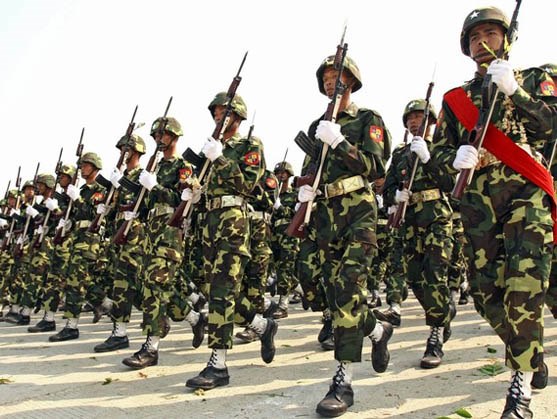 On 7 November, the International Human Rights Clinic (the Clinic) at Harvard Law School published a Legal Memorandum which establishes that certain Burma Army commanders are guilty of crimes against humanity and war crimes under international criminal law. The Legal Memorandum submits its findings on the basis of a three-year investigation (the Investigation) into human rights abuses associated with a Burma Army offensive in Karen State, which was launched in late 2005 and continued into 2008 (the Offensive). The Clinic chose this offensive “because it was one of the largest in recent memory and was widely condemned by the international community.” The Investigation focused specifically on the conduct of two military units – Southern Regional Military Command (SRMC) and Light Infantry Division 66 (LID 66) – in Thandaung Township, Karen State.
On 7 November, the International Human Rights Clinic (the Clinic) at Harvard Law School published a Legal Memorandum which establishes that certain Burma Army commanders are guilty of crimes against humanity and war crimes under international criminal law. The Legal Memorandum submits its findings on the basis of a three-year investigation (the Investigation) into human rights abuses associated with a Burma Army offensive in Karen State, which was launched in late 2005 and continued into 2008 (the Offensive). The Clinic chose this offensive “because it was one of the largest in recent memory and was widely condemned by the international community.” The Investigation focused specifically on the conduct of two military units – Southern Regional Military Command (SRMC) and Light Infantry Division 66 (LID 66) – in Thandaung Township, Karen State.
Articles 7 and 8 of the Rome Statute of the International Criminal Court (ICC) set out the legal requirements for an action to qualify as a “crime against humanity” or a “war crime,” respectively. The essence of a “crime against humanity” is that the act in question should be “part of a widespread and systematic attack directed against any civilian population, with knowledge of the attack.” Similarly, Article 8 stipulates that a “war crime” must be committed “as part of a plan or policy or as part of a large-scale commission of such crimes,” and must constitute a grave breach of the Geneva Conventions 1949, which regulate the conduct of armed conflict […]
• • •PRESS RELEASE: Harvard Law School Implicates Senior Myanmar Officials in War Crimes and Crimes Against Humanity
Yangon, Myanmar-A four-year investigation by the International Human Rights Clinic at Harvard Law School has found that the Myanmar military committed war crimes and crimes against humanity in 2005-2006, and that perpetrators, including the current Home Affairs Minister, continue to serve at the highest levels of the country’s government […]
• • •
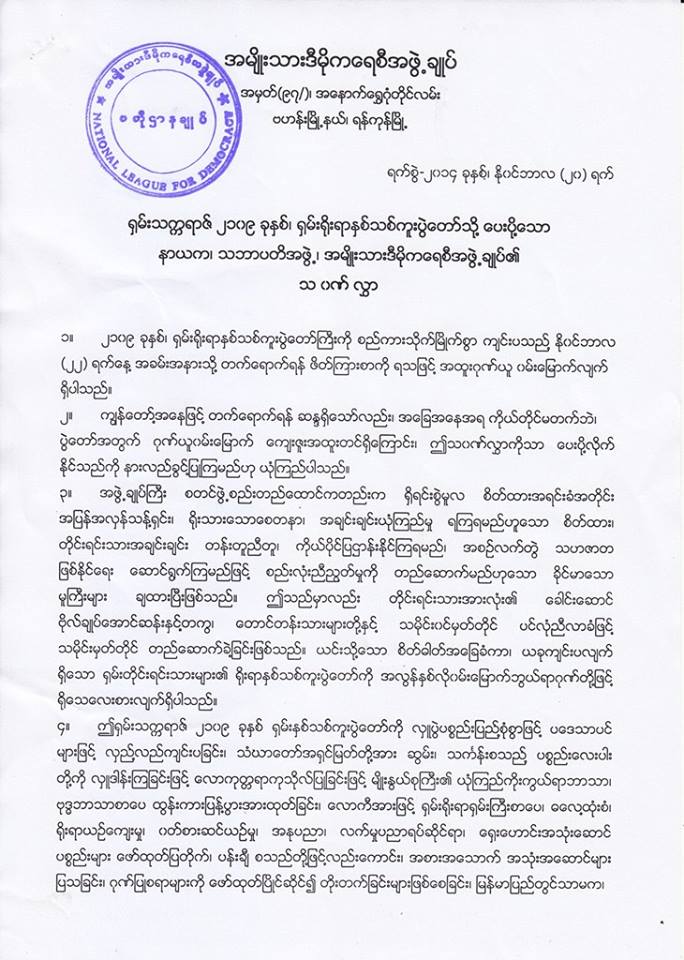
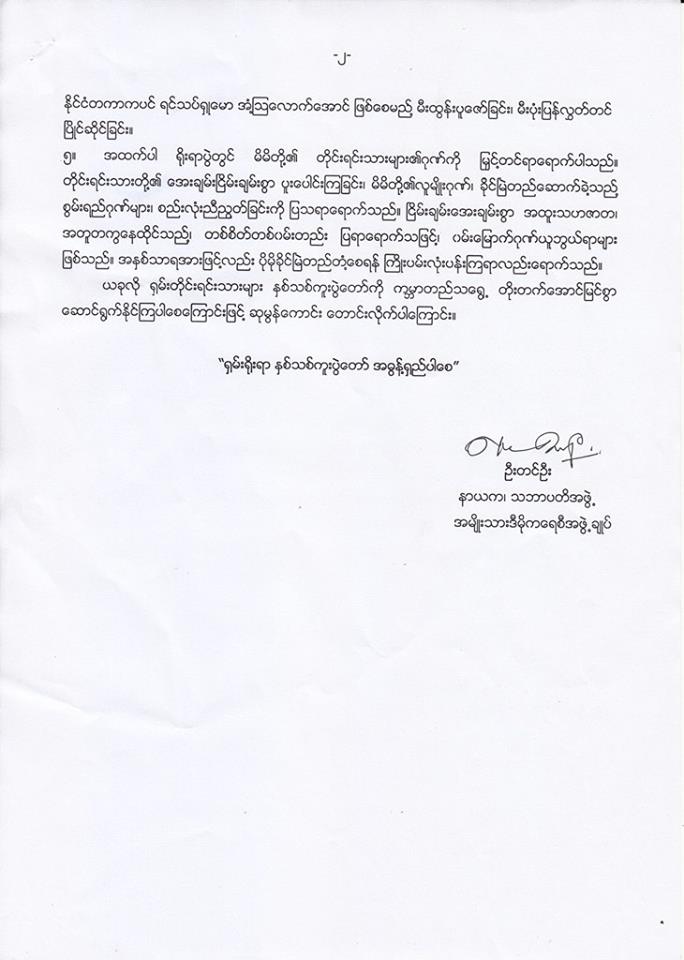
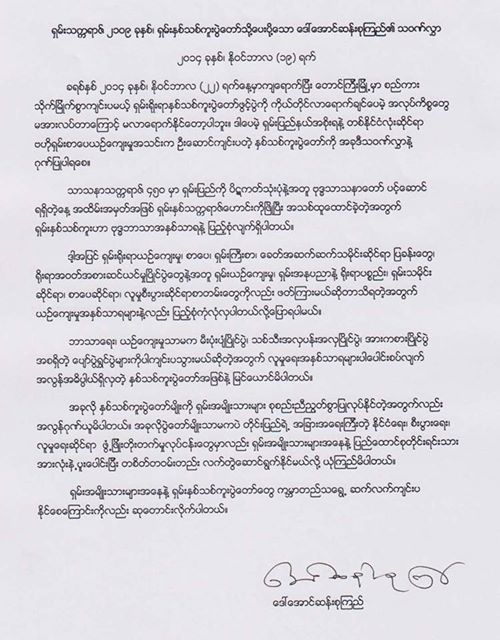








 All posts
All posts